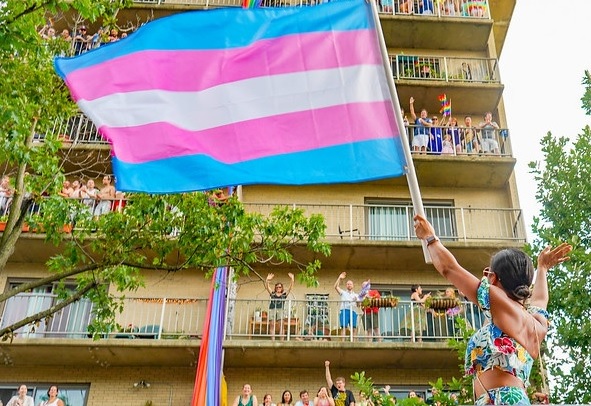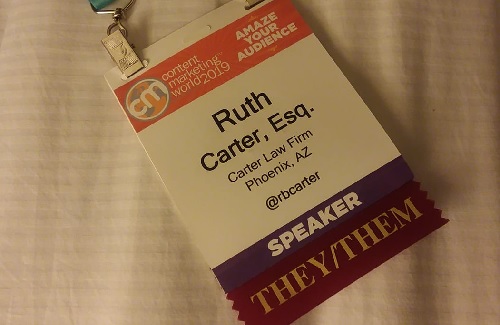Arizona has joined the number of states that has proposed legislation that would ban male-to-female transgender athletes from competing in female sports unless they have a doctor’s note that proves that they’re female. This law would impact athletes at every from level from K-12 schools to community colleges and state universities.

Why We’re Having This Debate
The surge of proposed laws followed news stories last year where a female track and field athlete claimed that male-to-female transgender athletes were unfairly allowed to compete in the girls’ division. The trans athletes finished a race higher than she did, which she claimed cost her the opportunity to compete at the regional race, which could impact her ability to get a college scholarship.
What I didn’t like about the reporting of this story is that most reports didn’t state whether the trans athletes were on hormone blockers and/or on hormone replacement therapy which would have made it a more level field than a cisgender male competing in a female sport. By the way, they’re both on hormones replacement therapy.
School Athletics May be the Only Option
My first thought when I heard about this proposed law in Arizona, was that trans athletes should bypass political issues in school and compete on club teams. A teacher friend pointed out that club teams are often very expensive, so the only option to participate in sports is to play on a school team.
Is It Talent or Testosterone?
Transgender girls are girls. They should be allowed to participate in girls’ activities, whether we are talking about Girl Scouts, entering a nunnery, or playing sports. Forcing a transgender girl to participate in boys’ activities or be left out is discriminatory and potentially devastating to her mental health.
In the situation of athletics, I wonder how much of is this outcry based on fairness and how much is based on transphobia. Are girls afraid of being beaten by someone they view as less than a girl?
It’s worth asking how much of these trans athletes’ success is based on talent or testosterone. History suggests that cisgender men have physical advantages over women in many sports. In looking at Olympic Records where men and women both compete in same types of events (e.g., track and field, weightlifting, etc.) the record held by the man is higher, faster, better than the women’s record. That’s why we created Title IX – to give women equal access to participate. But once a trans athlete has the same hormone level as their cisgender counterparts, I wonder if the cisgender athletes are claiming it’s unfair, but they’re using the competitions’ trans status to complain that they didn’t win.
It’s Time to Re-Examine Division in Sports
It’s time we re-examine how we divide participants in sports. With growing acceptance that there are more than two genders, which is backed by law in at least 17 states and Washington D.C., the traditional division of boys/men and girls/women is no longer sufficient. I’m a non-binary athlete (with a birth certificate to prove it), and when I sign up for a race, I rename the divisions “testosterone†and “estrogen†and select accordingly.
The International Olympic Committee (IOC) has guidelines regarding male-to-female athletes and the testosterone level they must have to compete in the women’s division. Lower level sports should adopt similar rules and require every athlete to have their testosterone level checked, and only those with a level above the threshold should be allowed to participate in the testosterone division.
(A friend suggested that the athlete’s sensitivity to testosterone should also be tested for it is possible for a cisgender woman to have a high testosterone level and body that is completely insensitive to it, so she won’t reap any athletic benefits from having this higher level.)

Where Change Should Start
In thinking about this issue, if we want schools to change how athletes are divided instead of using gender in the U.S., the National Collegiate Athletic Association (NCAA) should be the leader. If NCAA schools change from men’s and women’s sport to divisions based on hormones, public and private high schools will follow suit since many of the best high school athletes aspire to receive scholarships to compete in college.
I sent an email to the Chair of the Board of Directors for NCAA Division I, encouraging them to modify the classification of athletes instead of using gender identity. I don’t expect a response beyond a cursory, “Thank you for your message,†but hopefully it will plant a seed that change is needed.
Sister Laws for Access to Trans Medical Care
If states are going to pass laws that will limit male-to-female trans athletes from participating in sports, they need to a pass sister laws that allow for adequate and affordable access to medical care for transgender people, including the ability to access care without parental consent, and laws that allow non-binary and transgender people to change their birth certificates and driver’s licenses to reflect their gender.


